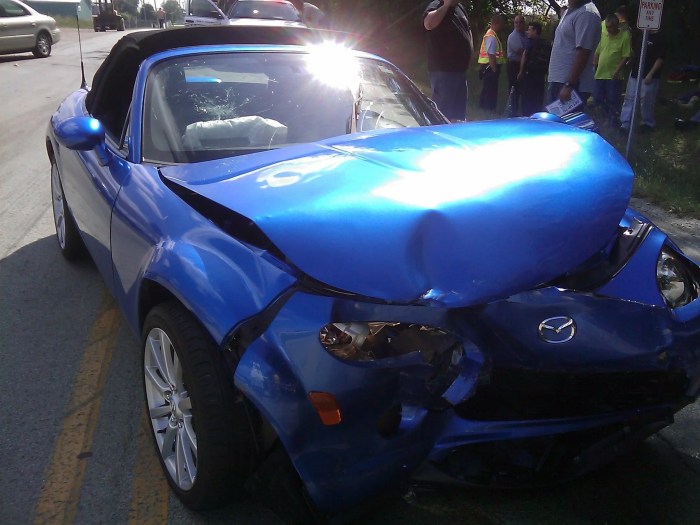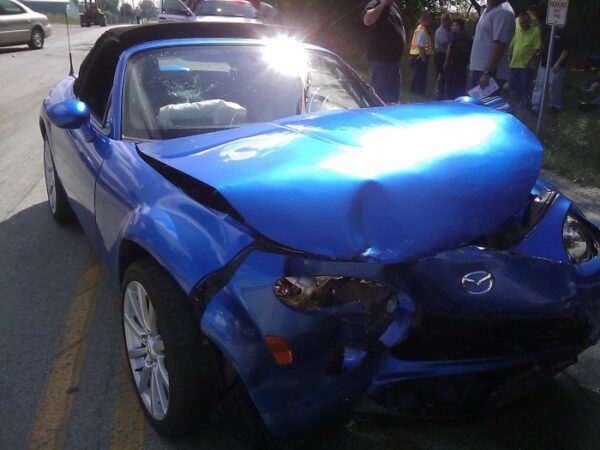
How far back do insurance companies look for accidents? It’s a question that pops up in the minds of many drivers, especially those with a less-than-perfect driving record. Insurance companies are always on the lookout for potential risks, and your driving history is a major factor they consider when setting your premiums. They want to make sure you’re not a high-risk driver, and that means looking back at your past to see if you’ve had any accidents or violations.
Understanding how far back insurance companies look for accidents is crucial for anyone who wants to get the best possible insurance rates. This information can help you make informed decisions about your driving habits and your insurance coverage. In this guide, we’ll dive into the world of insurance company practices, the factors that influence their lookback periods, and the impact of accident history on your insurance premiums.
Insurance Company Practices
Insurance companies are like detectives, always looking for clues about your driving history to assess your risk. They want to know if you’re a safe driver or someone who’s prone to accidents. This helps them determine your insurance premiums, which is basically how much you pay for coverage.
Types of Accidents Considered
Insurance companies are interested in all sorts of accidents, not just the ones that happen on the road. Here’s a breakdown of what they typically look at:
- Car Accidents: These are the most obvious ones. Insurance companies will look at the severity of the accident, who was at fault, and any injuries that resulted.
- Traffic Violations: Speeding tickets, running red lights, and other traffic violations are all red flags for insurance companies. These incidents suggest you might be a riskier driver.
- Claims History: Even if you haven’t been in an accident, insurance companies will look at your claims history. This includes things like filing claims for damage to your car or for medical expenses.
- Other Accidents: Insurance companies may also consider accidents that happened outside of your car, like motorcycle accidents or boating accidents. This is because these incidents can reveal patterns of risky behavior.
Timeframes for Accident History Checks
Insurance companies usually look back a certain number of years to assess your driving history. This timeframe can vary depending on the insurance company and the state you live in.
- Typically 3-5 Years: Most insurance companies will look back at least 3 years, and some may go back as far as 5 years.
- State Regulations: Some states have laws that limit how far back insurance companies can look. For example, in California, they can only look back 3 years for most types of accidents.
- Severity of Accidents: For serious accidents, like those involving fatalities or multiple vehicles, insurance companies may look back even further.
Factors Influencing the Lookback Period
Insurance companies carefully consider several factors when determining how far back they look for accident history. This process ensures accurate risk assessment and fair premium pricing for policyholders.
Types of Insurance Policies
The type of insurance policy significantly impacts the lookback period. For example, auto insurance companies often have a longer lookback period than health insurance companies. This difference stems from the nature of the risks associated with each type of policy. Auto insurance policies are prone to higher claims frequency, leading to a more comprehensive review of past accidents.
State Regulations
State regulations play a crucial role in defining the scope of accident history checks. Some states have specific laws regarding the length of time insurance companies can consider past accidents. These regulations aim to balance the insurance company’s need for accurate risk assessment with the policyholder’s right to privacy. For instance, certain states may restrict the lookback period for certain types of accidents, such as those involving minor traffic violations.
Nature of the Accident
The severity and nature of the accident also influence the lookback period. For instance, a serious accident involving multiple vehicles or injuries may be considered for a longer duration than a minor fender bender. Insurance companies consider the potential for future claims and risk associated with each accident.
Specific Policy Provisions
Specific provisions within individual insurance policies can also affect the lookback period. For example, a policy might state that accidents older than a certain number of years are not considered in the underwriting process. This provision can provide clarity and predictability for policyholders.
Risk Assessment Models
Insurance companies use sophisticated risk assessment models to determine the likelihood of future claims based on past accidents. These models consider various factors, including the severity of the accident, the driver’s age and driving experience, and the type of vehicle involved.
Industry Practices
Industry practices and guidelines also influence the lookback period. Insurance companies often follow established norms within their respective sectors to ensure consistency and fairness in underwriting practices.
Impact of Accident History on Insurance Rates

Your driving record is a big deal when it comes to your car insurance. Think of it like your credit score for the insurance world. If you’ve got a clean slate, you’re golden! But, if you’ve had some fender benders or even worse, your premiums might take a hit.
Impact of Accidents on Premiums
Insurance companies look at your accident history to assess your risk. If you’ve had accidents in the past, they’ll assume you’re more likely to have another one. This means you’ll likely pay more for your insurance.
It’s like a game of “risk vs. reward” for the insurance company. They want to make sure they’re charging you enough to cover any potential claims you might make in the future.
Here’s a table that shows how your insurance rates could increase based on different accident scenarios:
| Accident Scenario | Potential Rate Increase |
|—|—|
| Minor Accident (e.g., fender bender) | 10-20% |
| At-fault Accident (e.g., rear-ending someone) | 20-40% |
| Multiple Accidents | 40% or more |
| Serious Accident (e.g., injury or fatality) | 50% or more |
It’s important to note that these are just general estimates. The actual increase in your insurance rates will depend on several factors, including your insurance company, your driving record, and the state you live in.
Impact on Coverage Options
Your accident history can also affect the type of insurance coverage you can get. For example, if you have a history of accidents, you might have trouble getting full coverage or even be denied coverage altogether.
Think about it like this: if you’re a high-risk driver, insurance companies might be hesitant to take on the risk of insuring you. They might only offer you limited coverage options or charge you significantly higher premiums.
Dispute Resolution and Accident History

Okay, so you’ve got your insurance policy, but you’re pretty sure your accident history isn’t exactly accurate. Maybe there’s a fender bender from years ago that shouldn’t be on your record, or maybe some information is just plain wrong. Don’t worry, you’re not alone. It happens, and there are steps you can take to get things straightened out.
Challenging Inaccurate Accident History Information
It’s totally understandable to feel a little overwhelmed when you discover errors in your accident history. But remember, you have rights as a policyholder. Here’s how to navigate the process:
* Know Your Rights: You have the right to access and review your accident history information. This is usually available through your insurance company or a consumer reporting agency.
* Gather Your Evidence: Before you go full-on detective, make sure you have the right stuff. Collect any documentation you have, like police reports, accident reports, or even old insurance policies. This is your evidence, and it can make a big difference.
* Contact Your Insurance Company: Don’t just assume your insurance company knows what’s up. Give them a call or send a letter explaining the inaccuracies you’ve found. Be specific and polite, but firm in your request for correction.
* File a Dispute: If your insurance company doesn’t play ball, you might need to file a formal dispute. Check out your state’s insurance regulations for specific procedures.
* Consumer Reporting Agencies: If the issue is with your credit report, you can file a dispute directly with the credit bureaus. This is a separate process, but it’s worth checking out.
Access to Accident History Records, How far back do insurance companies look for accidents
Your accident history is basically a report card on your driving skills, and you have the right to see it. This is a pretty big deal because it can impact your insurance rates, and you want to make sure it’s accurate.
* The Fair Credit Reporting Act (FCRA): This is a big player in the game. It gives you the right to access your credit report and dispute any inaccurate information.
* Your Insurance Company: Your insurance company should be able to provide you with a copy of your accident history. You can usually request this online, by phone, or in person.
* Consumer Reporting Agencies: Companies like Equifax, Experian, and TransUnion can also provide you with a copy of your accident history.
Step-by-Step Guide for Disputing Inaccurate Accident Information
Here’s a step-by-step guide to help you get started:
1. Gather your evidence. Police reports, accident reports, anything you can get your hands on.
2. Contact your insurance company. Explain the inaccuracies and request a correction.
3. File a formal dispute. Check your state’s insurance regulations for specific procedures.
4. Follow up. Keep track of your communications and any deadlines.
5. Consider a credit report dispute. If the issue is with your credit report, file a dispute with the credit bureaus.
Importance of Maintaining a Safe Driving Record: How Far Back Do Insurance Companies Look For Accidents
Keeping a clean driving record is like having a secret weapon in the world of insurance. It’s a badge of honor that unlocks lower premiums, wider coverage options, and a smoother ride through life’s unexpected bumps. So, buckle up and get ready to learn how to become a master of the road and keep your insurance costs in check.
Benefits of a Clean Driving Record
A clean driving record is like a golden ticket for drivers. It unlocks a world of benefits, making insurance more affordable and less stressful. Here’s how:
- Lower Premiums: Insurance companies reward good drivers with lower premiums. Think of it like a discount for being a responsible road warrior. The cleaner your record, the bigger the discount.
- Wider Coverage Options: With a clean driving record, you’re more likely to qualify for a wider range of insurance coverage options. This means you have more choices to protect yourself and your vehicle, no matter what life throws your way.
- Increased Peace of Mind: Knowing you have a clean driving record brings peace of mind, knowing you’re in good standing with insurance companies and ready to face any situation with confidence.
Preventative Measures to Avoid Accidents
Accidents happen, but they’re often preventable. By taking a proactive approach, you can minimize your risk of getting into an accident and keep your driving record spotless. Here’s a list of tips to help you stay safe on the road:
- Be Mindful of Distractions: Put your phone down, turn off the radio, and focus on the road ahead. Distractions can lead to accidents, so stay alert and prioritize safety.
- Follow Traffic Laws: Speed limits and traffic signals aren’t suggestions; they’re rules designed to keep everyone safe. Obey them to avoid accidents and keep your driving record clean.
- Maintain Your Vehicle: Regular maintenance, including oil changes, tire rotations, and brake inspections, ensures your vehicle is in top shape, reducing the risk of breakdowns and accidents.
- Be Defensive: Always be aware of your surroundings and anticipate potential hazards. This means being prepared for unexpected situations and reacting quickly and safely.
- Drive Sober: Alcohol and drugs impair judgment and reaction time, making you a danger to yourself and others. Never drive under the influence.
Impact of Accident History on Future Insurance Premiums and Coverage
Your driving record is like a financial report card for insurance companies. Accidents are like red flags that can significantly impact your premiums and coverage options. Here’s how:
- Increased Premiums: Accidents are a major factor in determining your insurance premiums. The more accidents you have, the higher your premiums will be.
- Limited Coverage Options: A history of accidents can limit the types of coverage you’re eligible for. You may have trouble finding comprehensive or collision coverage, which can be crucial in case of an accident.
- Potential for Policy Cancellation: In extreme cases, insurance companies may cancel your policy if you have a history of serious accidents or violations.
Closure

Keeping a clean driving record is the best way to ensure you get the most affordable insurance rates. By avoiding accidents and violations, you can significantly reduce your risk profile and potentially save a lot of money on your premiums. And if you do have an accident, it’s important to be aware of your rights and the process for disputing inaccurate information. Understanding how far back insurance companies look for accidents can empower you to make smart decisions about your driving and your insurance coverage.
FAQ Insights
What if I had an accident a long time ago?
Insurance companies typically look back for a certain period, but the exact timeframe varies. Factors like the type of accident, your state, and your insurance policy all play a role.
How can I get my accident history removed from my record?
You can’t just erase your accident history. However, if you believe there’s inaccurate information on your record, you can dispute it with the insurance company or the relevant state agency.
Does my accident history affect my insurance coverage options?
Yes, your accident history can impact your coverage options. Insurance companies may be less willing to offer certain types of coverage, or they may charge higher premiums, if you have a history of accidents.





